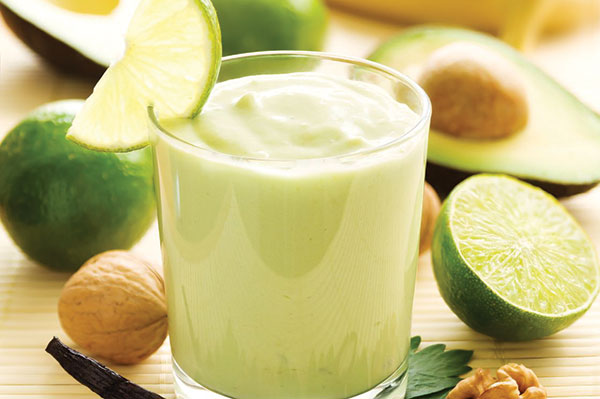Food for Life
Eating Well during Cancer Treatment and Beyond
by Maria Petzel, RD, CSO, LD, CNSC, FAND
When you’re undergoing cancer treatment, so many things can seem out of your control. However, one thing most survivors can control is nutrition.
During treatment, making the right food choices can help you manage symptoms, improve your tolerance of treatment, and increase your quality of life. Once treatment ends, good nutrition can help rebuild your body after cancer; it may also decrease your risk of some cancers coming back. Making nourishing food choices is one way you can play an active role in your treatment and recovery.
Take 5 – Tips for Healthy Eating
- 1 Eat small, frequent meals – about six to eight a day.
- 2 Plan your meals and snacks ahead of time. Don’t wait until mealtime to decide what to eat.
- 3 Drink plenty of fluids. Most people need six to eight cups per day.
- 4 Choose nutrient-dense foods, such as whole grains, fruits, and vegetables.
- 5 Eat protein with every meal and snack. Good protein choices include plant-based foods like beans, lentils, nuts, seeds, and tofu, as well as lean meats (especially fish and poultry), eggs, and low-fat dairy products (such as yogurt, cheese, and milk).
Eating to Ease Side Effects
Good nutrition can help you cope with some common side effects of cancer treatment, such as taste changes, sore mouth or throat, and poor appetite. Nausea, diarrhea, and constipation can also be relieved by combining the right food choices with proper medications.
For taste changes – Rinse your mouth with a baking soda and water solution (or water with lemon if you have no mouth sores) before and after meals. If foods taste metallic, use plastic utensils and avoid drinking from metal containers. To enhance dull taste, add tart foods and condiments (such as pickles, lemons, and vinegar) to your meals. This is also a good time to try new foods or foods you have previously disliked, as they may taste different to you now.
For sore mouth or throat – Eat soft, moist foods with extra sauce, dressing, or gravy. Instead of eating hot foods, eat foods that are room temperature or chilled. Avoid irritating foods and drinks, such as alcohol, citrus, caffeine, tomatoes, vinegar, and hot peppers.
For poor appetite or weight loss – Try to eat meals and snacks in a peaceful, low-stress environment. You may be able to boost your appetite by walking or exercising for a few minutes before each meal. Eat frequent, nutrient-dense meals and snacks with protein. If needed, replace some small meals with liquid nutrition drinks or homemade smoothies fortified with protein, and without added sugar. Increase your calorie intake by adding granola, dried fruit, avocado, or healthy oils (such as olive oil or canola oil) to meals and smoothies.
For nausea and vomiting – Small, frequent meals and snacks at room temperature are usually better tolerated by those experiencing cancer-related nausea and vomiting. Eliminate offending odors in the room where you eat, or where food is being prepared, by opening a window or running a fan. Do not fill up on liquids during mealtimes; drink in between meals instead. If your stomach is empty, start by eating dry toast or a few crackers before commencing with your meal. Avoid overly sweet, rich, greasy, or spicy foods. Some people may find tart and tangy foods to be helpful in abating nausea. In addition, drinking ginger tea or ginger ale may help ease nausea.
Making the right food choices can help you manage symptoms, improve your tolerance of treatment, and increase your quality of life.
For diarrhea – Eat foods that are high in soluble fiber, such as oats, bananas, apples without the peel (or applesauce), and citrus fruits without much membrane. Drink plenty of fluids. Drinks that have electrolytes (such as low-sugar sports drinks or oral rehydration solutions) may work best. Avoid hot liquids. Decrease or avoid sugar-sweetened beverages, foods sweetened with sugar alcohol, and foods high in insoluble fiber (such as raw vegetables, thick-skinned fruits, seeds, and high-fiber whole grains, such as bran cereal). If you are lactose intolerant, use lactose-free dairy products or take lactase pills with meals that contain dairy.
For constipation – Increase fluid intake, especially warm and hot liquids. Eat prunes or drink prune juice. If fluid intake is adequate, gradually increase intake of foods high in insoluble fiber, such as those listed above. To avoid additional discomfort when constipated, avoid gas-forming foods and behaviors, such as drinking through straws, chewing gum, and drinking carbonated beverages.
Eating Well after Cancer
Even after cancer treatment is complete, nutrition continues to play an important role in health and wellness for survivors. Eating well can help prevent new cancers, lower your risk of cancer recurrence, and protect against heart disease and other health conditions. After cancer, you should strive to eat a plant-based diet that includes two and a half to four and a half cups of vegetables and fruits each day and that is high in whole grains. You should also limit your consumption of red meat, processed meat, and processed foods, as well as foods that are high in sugar, fat, or salt and those that are low in fiber. It’s also important to be physically active and to maintain a healthy weight.

Maria Petzel is a senior clinical dietitian at The University of Texas MD Anderson Cancer Center in Houston, TX. She is certified in both oncology nutrition and nutrition support.
To create your own healthy eating plan during or after cancer treatment, consult with a registered dietitian, preferably one who is a certified specialist in oncology nutrition (CSO). Registered dietitian nutritionists (RD or RDN) are food and nutrition experts who can help translate the science of nutrition into practical, individualized solutions for survivors and caregivers. Ask your doctor for a referral.
This article was published in Coping® with Cancer magazine, July/August 2016.


